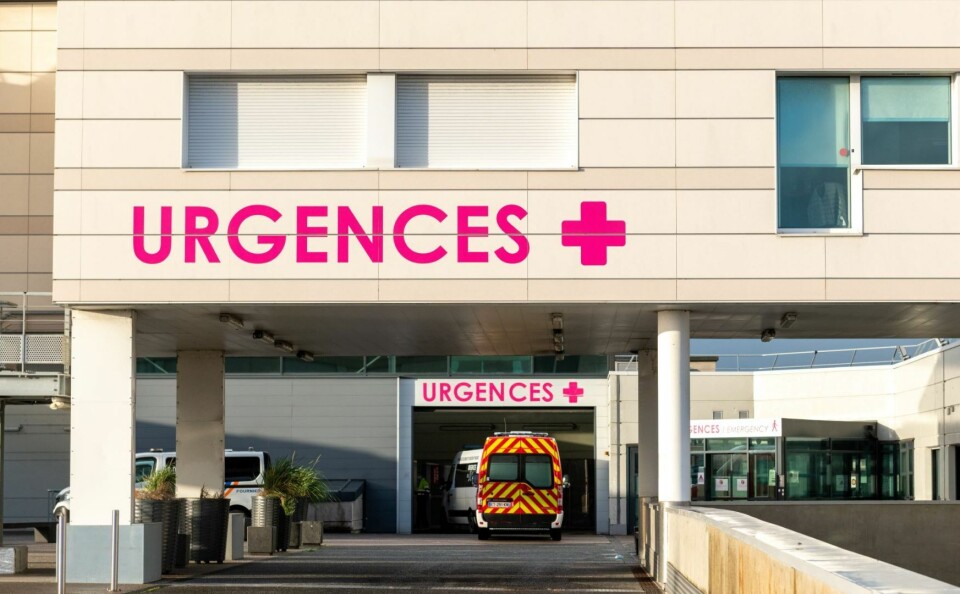-
Letters: France needs a new strategy to stop spam calls
Connexion reader says the new legislation will not work just as previous rules failed
-
Letters: VAT threshold reduction would hurt small businesses in France
Connexion reader notes that the additional tax burden would bring more bureaucracy with it
-
Comment: How France should respond to ‘bully’ Trump's tariffs
Columnist Simon Heffer looks at the effect the brewing trade war may have on France
Heatwave shows a ‘rickety’ French emergency health service in crisis
Columnist Nabila Ramdani shares her view on the heatwave heroes and hospitals buckling under pressure

The heatwave that engulfed France this summer has, as usual, brought out the hero in so many different people.
They range from the incredible firefighters toiling night and day against forest infernos to the social services staff and selfless volunteers helping round the clock to organise accommodation for those fleeing their homes.
Less impressive, however, has been the response by the country’s crisis-ridden emergency medical services.
Read more: ‘Dangerous conditions’ in 127 hospitals and emergency units in France
Government struggles to support medical services
Beyond the destruction of woodland and property, the blazes have led to thousands of people needing care for multiple conditions, from fire-related wounds to severe heat stroke.
High summer is – just like the depths of winter – a time when crisis calls multiply but ongoing staffing problems mean dealing with them all properly has become near-impossible.
Patients waiting outside medical centres until doors open have become as commonplace as those being left on trolleys in A&E corridors.
Large hospitals, such as the main one in Bordeaux – the city in the area where the forest fires were at their worst – are among those that have had to close departments at night.
It followed the then-health minister Brigitte Bourguignon warning in June that “the summer will be difficult” as the government struggles to “find solutions so that people are not deprived of care”.
Read more: France announces ‘first measures’ to tackle hospital staff shortages
Worrying situation given President Macron is the son of doctors
For a country renowned for its normally gold-standard national health service, the lack of staff is of immense concern.
More than 120 accident and emergency services have had to shut down in recent years because of a shortage of personnel.
The coronavirus pandemic is another emergency that has caused much damage. It led to an astonishing 15,000 staff being sacked for refusing to get vaccinated.
However, the new Covid bill currently being debated opens up the possibility of unvaccinated health professionals being allowed to return to work, although not immediately.
Read more: Five Q&As about France’s new Covid bill
Those who still have jobs are complaining about very low salaries and cost-cutting.
A sight that has become routine under the Emmanuel Macron administration is white-coated medics protesting on the streets. Many were involved in a national strike in June.
For a president who is the son of doctors, it is a particularly worrying situation.
System cannot cope with spiralling demands
A stop-gap solution offered by Macron has been to increase pay for GPs over the crucial summer period only, and to improve overtime rewards for non-medical staff assisting them.
Regional health agencies have also been given powers to hire retired healthcare workers by boosting their pensions with extra income.
Healthcare currently represents more than 11% of GDP, and the country spends close to €170billion reimbursing medical costs.
People are prepared to pay for it via taxes and social charges, but the system is looking increasingly rickety.
Despite all the cash available, it cannot cope with spiralling demands. Staff are being asked to do more for less pay and burnout rates are high.
A vast, rural country with ‘medical deserts’
Strained emergency services are just part of the overwhelmingly bleak picture too, as hospitals report shortages of gynaecologists, geriatric nurses and all kinds of other vital specialists.
A serious historical problem is that France severely limited the number of medical student places available from the early 1970s until 2021.
Demands for health professionals to be trained more quickly are increasing, especially as it can take up to seven years before a doctor can practise.
In a vast rural country, there are plenty of so-called ‘medical deserts’, where vulnerable people have to travel miles to find somebody to look after them.
Crises like forest fires throw spotlight on inadequacies
Many staff are quitting altogether to join a private health sector in France that offers attractive packages.
Some are also moving abroad to take up lucrative jobs in countries such as the US or Gulf States.
Those who have worked in the French system for decades know that the pandemic, along with emergencies like those caused by the forest fires, have exacerbated problems that have been intensifying for years.
Related articles
Wildfires to become daily reality in France by 2023, warns fire chief
One in five French A&E units face cuts or closure due to lack of staff
‘Your online French health space is ready’: is this message a scam?
























